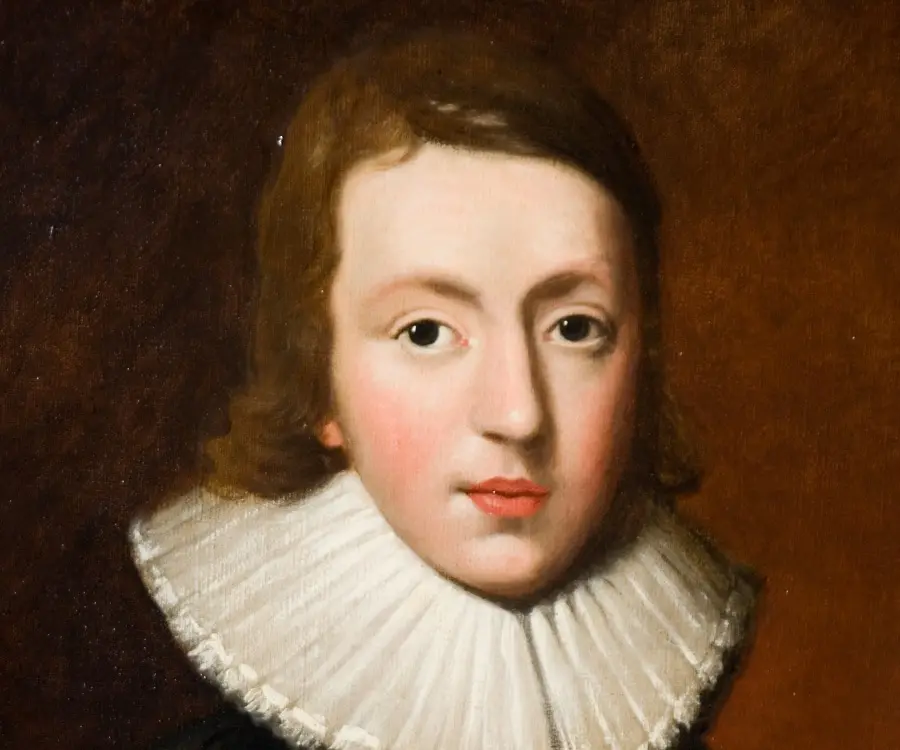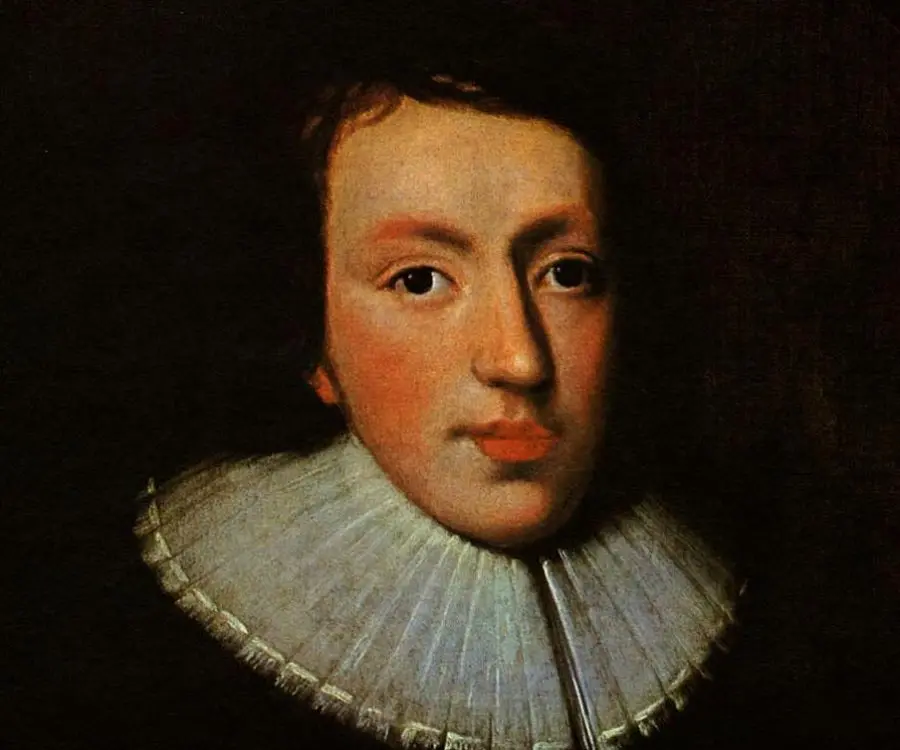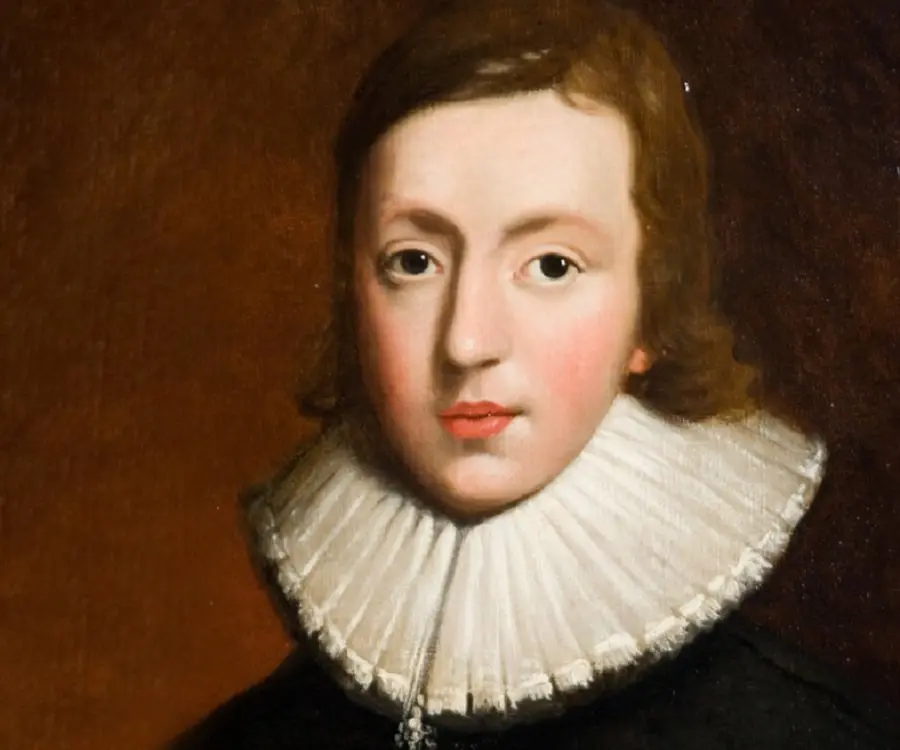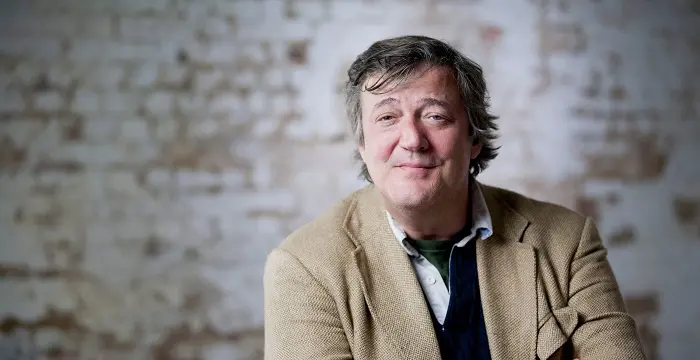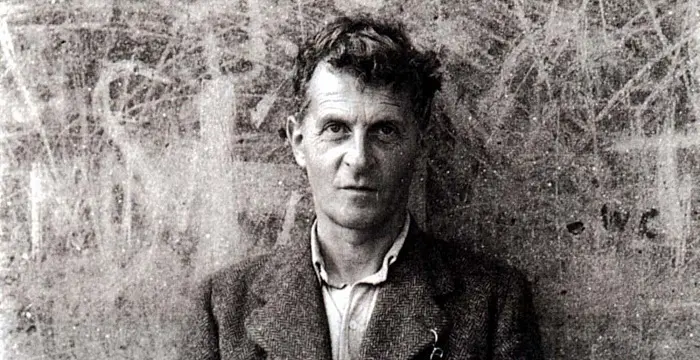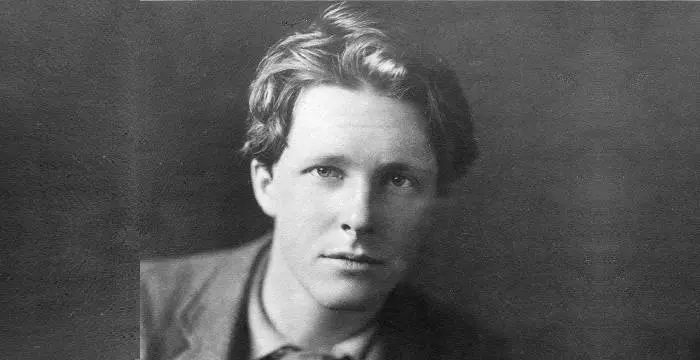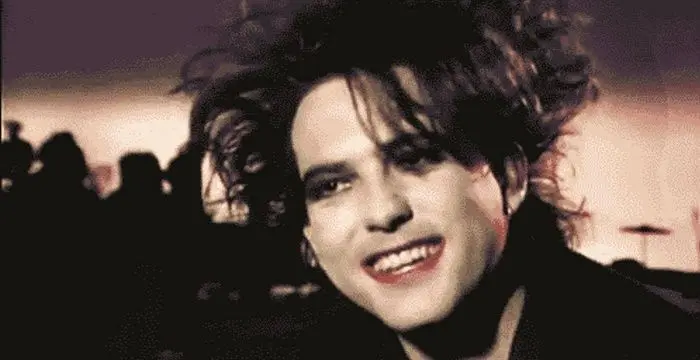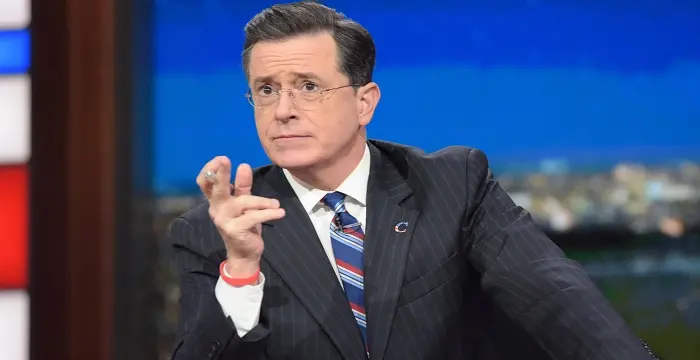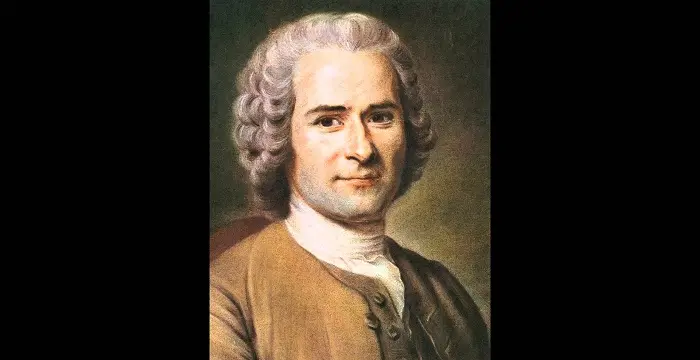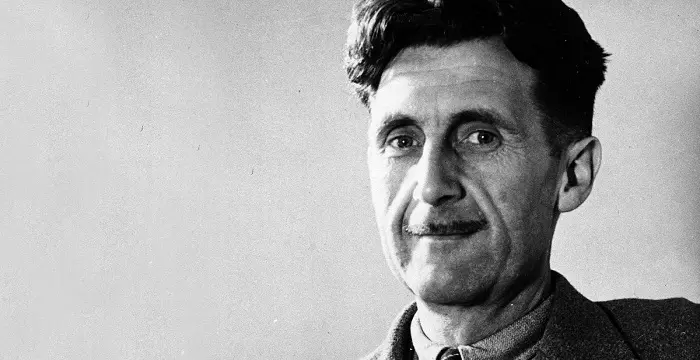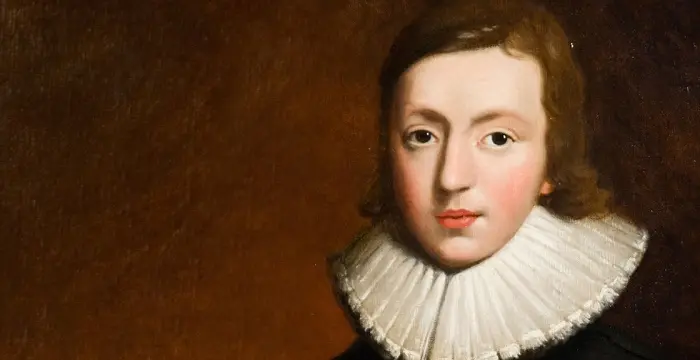
John Milton - Civil Servant for the Commonwealth of England, Timeline and Childhood
John Milton's Personal Details
John Milton was a very famous English poet, historian as well as a civil servant in the British government
| Information | Detail |
|---|---|
| Birthday | December 9, 1608 |
| Died on | November 8, 1674 |
| Nationality | British |
| Famous | Cambridge University, Writers, Poets, INFP, Civil Servant for the Commonwealth of England, Polemicist |
| Spouses | Mary Powell |
| Siblings | Anne, Christopher |
| Childrens | Anne, Deborah, Mary |
| Universities |
|
| Notable Alumnis |
|
| Birth Place | Cheapside, City of London, United Kingdom |
| Gender | Male |
| Father | John Milton, Sr |
| Mother | Sarah Jeffrey |
| Sun Sign | Sagittarius |
| Born in | Cheapside, City of London, United Kingdom |
| Famous as | Poet, Polemicist, and Civil Servant for the Commonwealth of England. |
| Died at Age | 65 |
John Milton's photo
Who is John Milton?
John Milton was a very famous English poet, historian as well as a civil servant in the British government. He is considered to be the greatest writer of English verse after William Shakespeare and one of the most learned poets of all times. He became a prominent figure when England was passing through a time of huge religious and political turmoil. He took an active part in advocating the overthrow of a cruel monarchy and the establishment of a democratic government elected by its citizens. He wrote hundreds of pamphlets criticizing the role and influence of the monarchy and the clergy in the life of the citizens of the country and demanded for their freedom from religious and political oppression. He called upon the Catholic clergy to give up their control over religious thoughts and make Christianity a better religion. He was imprisoned for protesting against the monarchy and for proposing a free civil society. He had a unique style of writing that influenced poets who came after him. A large number of poets admired his skills as a poet but many of them did not accept his views on religion. The French and the American revolutions later were also influenced by his thoughts.
Childhood & Early Life
John Milton was born in Cheapside in London, United Kingdom, on December 9, 1608. His father John Milton Sr. was a scrivener who prepared wills and deeds for others and his mother was Sarah Jeffrey, the daughter of a wealthy merchant.
He had an elder sister named Anne and a younger brother named Christopher. He also had other siblings who had died in their infancy.
John was a good student and loved poetry from a very young age. His father also composed music from whom he got his love for music.
He received private tuitions at home initially from a Scottish tutor named Thomas young who held an M.A. degree from the ‘University of St. Andrews’ and probably infused radical ideas into the young Milton.
After being tutored by Thomas Young, John joined the ‘St. Paul’s School’ in London in 1620 to study Greek, Latin and classical languages.
He wanted to become a priest in the ‘Church of England’ and got admitted to the ‘Christ’s College’ in 1625. He was expelled from the college for a brief period in 1626 due to some disagreement with his tutor Bishop William Chappell.
He was reinstated in the college in April 1626 and continued his study of ethics, logic, Latin, Greek, and Hebrew. During this time he composed poems in Latin.
He received his B.A. degree from the ‘Christ College’ in Cambridge in 1629 and was ranked fourth among twenty-four other candidates who had appeared for the examination.
He received his M.A. degree from the ‘Cambridge University’ in July 1632.
Initial Writings
John Milton wrote his first serious poem in 1628 titled ‘On the Death of a Fair Infant, Dying of the Cough’ which was based on the sadness caused by the death of his sister’s baby.
In 1629 he wrote the poem on divine love titled ‘On the Morning of Christ’s Nativity’. He started to write verses more and more in English rather than in Latin.
In 1632 after getting his M.A. degree he shifted to Hammersmith where his family home was situated. Later he moved to his family’s country estate in Horton, Buckinghamshire, where he continued to study mathematics, history, literature and theology.
During these six years he got involved in the cultural and social life of the city and its suburbs and wrote some sonnets and lyrics which includes ‘A Mask’ which was a mixture of poetry, dances and songs.
In 1637 he wrote the poem ‘Lycidas’ which dealt with the reason why good people normally died at a young age.
During the period from 1638 to 1639 he went on a tour of Europe for 15 months. He spent most of his time in Rome and Florence in Italy. Wherever he visited, he was accepted easily into the social circles as he was able to speak a variety of languages. He could not make his trip to Greece and had to return to England as the political and religious scene back home had become bad with the start of the ‘Bishops’ War’.
Mature Period
John Milton wrote hundreds of leaflets urging the Catholic bishops to release their hold on religious thoughts and practices during 1641 and 1642 when a civil war broke out in England between the Protestants and the Catholics led by King Charles. The war went on till 1649 when King Charles was defeated and executed.
In 1644 Milton came out with his work ‘Of Education’ which dealt with the topic of the development of discipline, ability, judgment and other traits in young boys.
He also wrote ‘Areopagitica’ in the same year which championed the freedom of speech and discussion for men so that truth could prevail.
In 1649, after the war had ended, Milton wrote ‘The Tenure of Kings and Magistrates’ in which he condemned the tyranny perpetuated by kings and monarchs on their subjects who had the right to be free to decide their own fates.
Very soon after this, he was appointed as the secretary for foreign languages by the Cromwell government which had come to power. He held this post for a decade and translated state letters from English to Latin.
Period of Travails and Triumph
In 1659 he wrote a tract titled ‘A Treatise of Civil Power’ in which he repeated his appeal to separate the state from the church.
In another tract titled ‘Ready and Easy Way’ which he wrote in 1660, he advocated the formation of a democratic government where the citizens would be able to elect their representatives by voting freely.
When the monarchy was reestablished in 1660 with Charles II succeeding his father Charles I to the throne, Milton faced a lot of persecution for supporting the cause of the people in overthrowing the king. He was imprisoned for some time and many of his books were burnt publicly. He received a general pardon later.
Milton went through an unfortunate patch during this time when he lost his second wife in 1658. He dedicated a sonnet ‘To My late Departed Saint’ to her.
In 1667 he published ‘Paradise Lost’ which had 10 volumes and is considered as one of the greatest epics in English language. It took him several years from 1658 to 1664 to write this epic.
He came out with a sequel to this epic ‘Paradise Regained’ in 1671 which dealt with the rejection by Jesus Christ of the temptations created by Satan. In the same year he wrote another piece titled ‘Samson Agonistes’ in which he described how the Hebrew strongman succumbed to selfishness and passion.
In 1673 John Milton published a collection of poems that he had written in 1645 with introductions in Latin and also a collection of letters that he had penned during his college days in Cambridge.
He wanted to publish the state papers he had written in Latin and a small history of Moscovia but could not fulfill his wish. Both were published after his death in 1676 and 1682 respectively.
Major Works
John Milton’s greatest work was ‘Paradise Lost’ which was based on the Biblical stories of Creation, Adam and Eve and Satan. He also wrote some great plays which include ‘Comus’, ‘Samson Agonistes’ and ‘Arcades’.
Personal Life & Legacy
When he was 34 years old, John Milton married Mary Powell who was 17 years old in May 1642. She separated from him for some years because of his financial problems. They were united later and had four children named Anne, Mary, John and Deborah. Mary died in 1652 from complications during the birth of Deborah.
After his first wife’s death he married Katherine Woodcock in 1656 who also died two years later while giving birth to a daughter who also died.
He became completely blind in 1652 after losing his eyesight gradually over a few years.
He married Elizabeth Minshell in 1663 after his release from prison.
In 1673 John Milton got embroiled in a public controversy by writing ‘Of True Religion’ which was a defense of Protestantism.
He died in Chalfont St. Giles in the United Kingdom on November 8, 1674.
His biography in English was published by his nephew Edward Phillips in 1694.
His last manuscript ‘Christian Doctrine’ written in Latin was discovered, translated and published in 1825.
A monument was built in the ‘Poet’s Corner’ in ‘Westminster Abbey’ in his honor.
// Famous Cambridge University
Stephen Fry
Stephen Fry is a comedian, actor, author, television and radio presenter. Read the biography and know all about his childhood, career, profile and timeline.
Ludwig Wittgenstein
Ludwig Wittgenstein is a renowned philosopher. Read on to know about the life, career, and works of the famous Austrian philosopher Ludwig Wittgenstein.
Rupert Brooke
Rupert Brooke was an English poet who is widely known for his poem ‘The Soldier’, which was a part of five war sonnets. This biography of Rupert Brooke provides detailed information about his childhood, life, achievements, works & timeline
John Milton biography timelines
- // 9th Dec 1608John Milton was born in Cheapside in London, United Kingdom, on December 9, 1608. His father John Milton Sr. was a scrivener who prepared wills and deeds for others and his mother was Sarah Jeffrey, the daughter of a wealthy merchant.
- // 1620After being tutored by Thomas Young, John joined the ‘St. Paul’s School’ in London in 1620 to study Greek, Latin and classical languages.
- // 1626He wanted to become a priest in the ‘Church of England’ and got admitted to the ‘Christ’s College’ in 1625. He was expelled from the college for a brief period in 1626 due to some disagreement with his tutor Bishop William Chappell.
- // Apr 1626He was reinstated in the college in April 1626 and continued his study of ethics, logic, Latin, Greek, and Hebrew. During this time he composed poems in Latin.
- // 1629He received his B.A. degree from the ‘Christ College’ in Cambridge in 1629 and was ranked fourth among twenty-four other candidates who had appeared for the examination.
- // 1629In 1629 he wrote the poem on divine love titled ‘On the Morning of Christ’s Nativity’. He started to write verses more and more in English rather than in Latin.
- // 1632He received his M.A. degree from the ‘Cambridge University’ in July 1632.
- // 1632In 1632 after getting his M.A. degree he shifted to Hammersmith where his family home was situated. Later he moved to his family’s country estate in Horton, Buckinghamshire, where he continued to study mathematics, history, literature and theology.
- // 1637In 1637 he wrote the poem ‘Lycidas’ which dealt with the reason why good people normally died at a young age.
- // 1638 To 1639During the period from 1638 to 1639 he went on a tour of Europe for 15 months. He spent most of his time in Rome and Florence in Italy. Wherever he visited, he was accepted easily into the social circles as he was able to speak a variety of languages. He could not make his trip to Greece and had to return to England as the political and religious scene back home had become bad with the start of the ‘Bishops’ War’.
- // 1641 To 1649John Milton wrote hundreds of leaflets urging the Catholic bishops to release their hold on religious thoughts and practices during 1641 and 1642 when a civil war broke out in England between the Protestants and the Catholics led by King Charles. The war went on till 1649 when King Charles was defeated and executed.
- // 1642 To 1652When he was 34 years old, John Milton married Mary Powell who was 17 years old in May 1642. She separated from him for some years because of his financial problems. They were united later and had four children named Anne, Mary, John and Deborah. Mary died in 1652 from complications during the birth of Deborah.
- // 1644In 1644 Milton came out with his work ‘Of Education’ which dealt with the topic of the development of discipline, ability, judgment and other traits in young boys.
- // 1649In 1649, after the war had ended, Milton wrote ‘The Tenure of Kings and Magistrates’ in which he condemned the tyranny perpetuated by kings and monarchs on their subjects who had the right to be free to decide their own fates.
- // 1652He became completely blind in 1652 after losing his eyesight gradually over a few years.
- // 1656After his first wife’s death he married Katherine Woodcock in 1656 who also died two years later while giving birth to a daughter who also died.
- // 1658Milton went through an unfortunate patch during this time when he lost his second wife in 1658. He dedicated a sonnet ‘To My late Departed Saint’ to her.
- // 1658 To 1667In 1667 he published ‘Paradise Lost’ which had 10 volumes and is considered as one of the greatest epics in English language. It took him several years from 1658 to 1664 to write this epic.
- // 1659In 1659 he wrote a tract titled ‘A Treatise of Civil Power’ in which he repeated his appeal to separate the state from the church.
- // 1660In another tract titled ‘Ready and Easy Way’ which he wrote in 1660, he advocated the formation of a democratic government where the citizens would be able to elect their representatives by voting freely.
- // 1660When the monarchy was reestablished in 1660 with Charles II succeeding his father Charles I to the throne, Milton faced a lot of persecution for supporting the cause of the people in overthrowing the king. He was imprisoned for some time and many of his books were burnt publicly. He received a general pardon later.
- // 1663He married Elizabeth Minshell in 1663 after his release from prison.
- // 1671He came out with a sequel to this epic ‘Paradise Regained’ in 1671 which dealt with the rejection by Jesus Christ of the temptations created by Satan. In the same year he wrote another piece titled ‘Samson Agonistes’ in which he described how the Hebrew strongman succumbed to selfishness and passion.
- // 1673In 1673 John Milton published a collection of poems that he had written in 1645 with introductions in Latin and also a collection of letters that he had penned during his college days in Cambridge.
- // 1673In 1673 John Milton got embroiled in a public controversy by writing ‘Of True Religion’ which was a defense of Protestantism.
- // 8th Nov 1674He died in Chalfont St. Giles in the United Kingdom on November 8, 1674.
- // 1676 To 1682He wanted to publish the state papers he had written in Latin and a small history of Moscovia but could not fulfill his wish. Both were published after his death in 1676 and 1682 respectively.
// Famous INFP
Robert Smith
Robert Smith is an English musician and the lead singer of the British rock band, ‘The Cure.’ This biography of Robert Smith gives detailed information on his profile, childhood, life and timeline.
Stephen Colbert
Stephen Colbert is an American comedian and satirist. Read the biography to learn all about his childhood, career, profile and timeline.
Jean-Jacques Rousseau
Jean-Jacques Rousseau was a noted Swiss-born philosopher, writer and composer. Check out this biography to know about his childhood, family life, achievements and other facts about his life.
Johnny Depp
Johnny Depp is a famous Hollywood actor renowned for his roles of Captain Jack Sparrow in the ‘Pirates of Caribbean’ movies. To know more about his childhood, profile, career and timeline read on the following biography
Nicolas Cage
Nicolas Cage is a famous American actor, producer and director, best-known for his role in action and sci-fi films. This biography profiles his childhood, career, life, achievements and timeline.
George Orwell
George Orwell was an English novelist, essayist, journalist and critic; he is best known for his novels ‘Animal Farm’ and ‘Nineteen Eighty-Four’. Check out this biography to know about his childhood, life, achievements, works & timeline
John Milton's FAQ
What is John Milton birthday?
John Milton was born at 1608-12-09
When was John Milton died?
John Milton was died at 1674-11-08
Where was John Milton died?
John Milton was died in Chalfont St Giles
Which age was John Milton died?
John Milton was died at age 65
Where is John Milton's birth place?
John Milton was born in Cheapside, City of London, United Kingdom
What is John Milton nationalities?
John Milton's nationalities is British
Who is John Milton spouses?
John Milton's spouses is Mary Powell
Who is John Milton siblings?
John Milton's siblings is Anne, Christopher
Who is John Milton childrens?
John Milton's childrens is Anne, Deborah, Mary
What was John Milton universities?
John Milton studied at Cambridge University, St. Paul's School, London, BA, Christ's College, Cambridge University (1625-29), MA, Christ's College, Cambridge University (1629-32)
What was John Milton notable alumnis?
John Milton's notable alumnis is Cambridge University
Who is John Milton's father?
John Milton's father is John Milton, Sr
Who is John Milton's mother?
John Milton's mother is Sarah Jeffrey
What is John Milton's sun sign?
John Milton is Sagittarius
How famous is John Milton?
John Milton is famouse as Poet, Polemicist, and Civil Servant for the Commonwealth of England.
